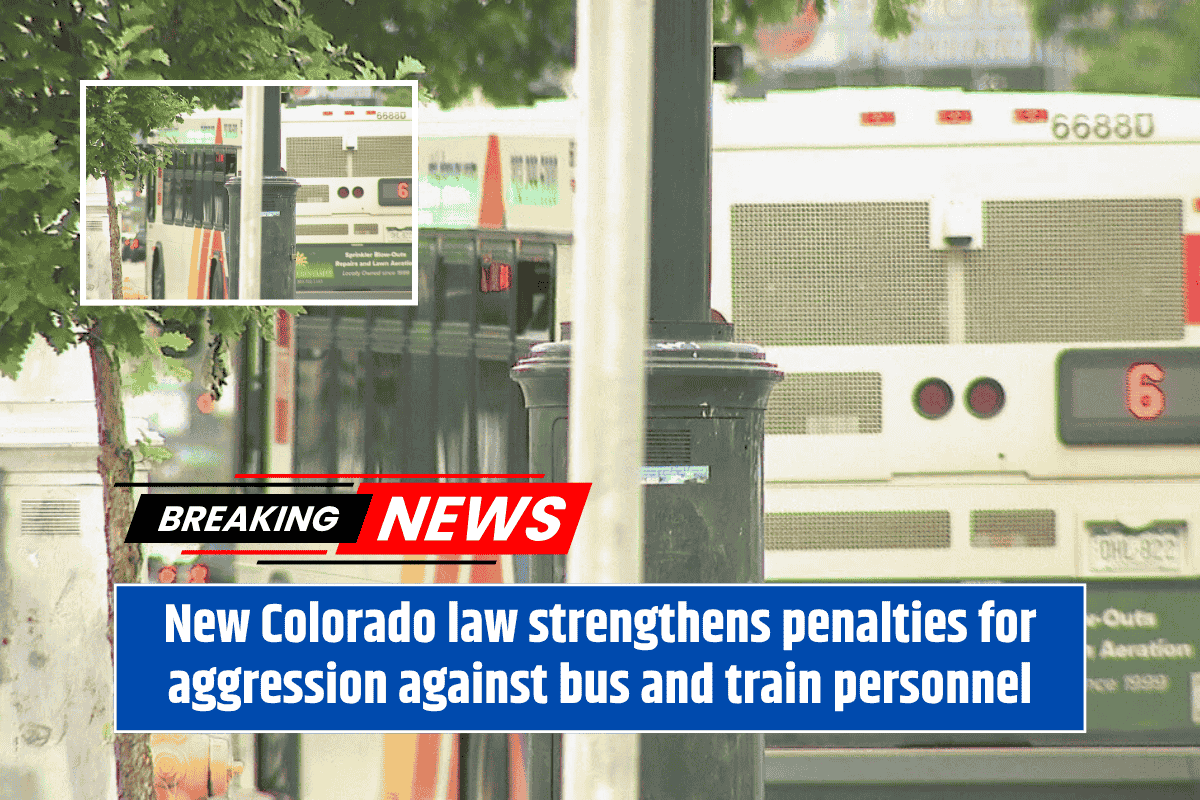A new state law in Colorado is making a strong statement against violence directed at transit workers. The law criminalizes the assault of bus and train operators, and it comes with serious consequences. This is a step toward improving the safety of those who serve the public by operating buses and trains across the state. The law reflects growing concerns about the increasing number of violent incidents involving transit workers.
Rising Assaults on Transit Workers Nationwide
Between 2008 and 2022, major assaults on transit workers nearly tripled across the United States. The Federal Transit Administration (FTA) defines major assaults as incidents that result in fatalities or injuries severe enough to require medical transport. To address this alarming trend, the FTA issued a directive in 2024, urging transit agencies nationwide to assess and mitigate risks related to assaults on transit workers. The goal is to improve worker safety and ensure better protection for those on the job.
Ronald Short’s Personal Story
Ronald Short, a longtime bus driver and the acting recording secretary for the transit union ATU Local 1001, understands the challenges faced by transit workers. With 26 years of experience serving the Denver metro area, Short says that being a bus driver is more than just a job—it’s a family tradition. “I was blessed to follow in my dad’s footsteps,” Short told CBS Colorado, emphasizing the importance of the role transit workers play in keeping the city moving.
However, Short admits that today’s operators face a different set of challenges. “Twenty-six years ago, I wasn’t dealing with rapid homelessness,” he says. “You never know who is getting on your bus.” Along with the usual traffic and weather-related issues, transit workers today often face unsafe situations due to social challenges such as homelessness and drug use on public transportation.
The Impact of the New Law
This new law aims to make a difference for transit workers like Short. Assaults against transit workers are now classified as a Class 1 misdemeanor in Colorado, which can result in up to one year in jail and/or a $1,000 fine. The law also focuses on enhancing training and resources for transit law enforcement, helping improve public safety.
For Short, the law represents hope for a safer work environment. “This is teaching the public what line not to cross,” he said. He is optimistic that the law will reduce the number of dangerous incidents on the job and give transit workers more peace of mind.
Support from Regional Transportation District (RTD)
The Regional Transportation District (RTD) has been a strong supporter of the new law. They believe the law will help recruit and retain transit operators by addressing issues like violence and harassment. “When assaults and unwelcomed behavior are experienced by RTD’s transit workers, it can have a negative impact on the agency’s ability to recruit and retain a skilled workforce,” said an RTD spokesperson. The agency is hopeful that HB25-1290 will strengthen the penalties for harassment and violence, offering a stronger criminal justice tool to deter future incidents.
Governor Jared Polis also supported the law, signing it into effect. The hope is that the law will send a clear message to municipalities and the public that Colorado is serious about protecting its transit workers.
For transit workers like Ronald Short, this new law provides much-needed protection. With increasing risks and challenges, especially in urban areas, the law aims to ensure that those who help move the city’s public transportation system are safer on the job. As Short put it, “I feel better that the law is there. That protection is a voice for us to be heard.” With stronger penalties for violence and better resources for law enforcement, Colorado is taking a significant step toward safeguarding transit workers and improving public safety.
